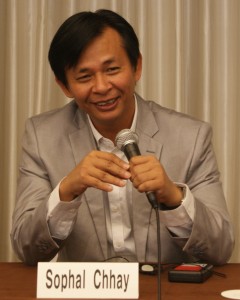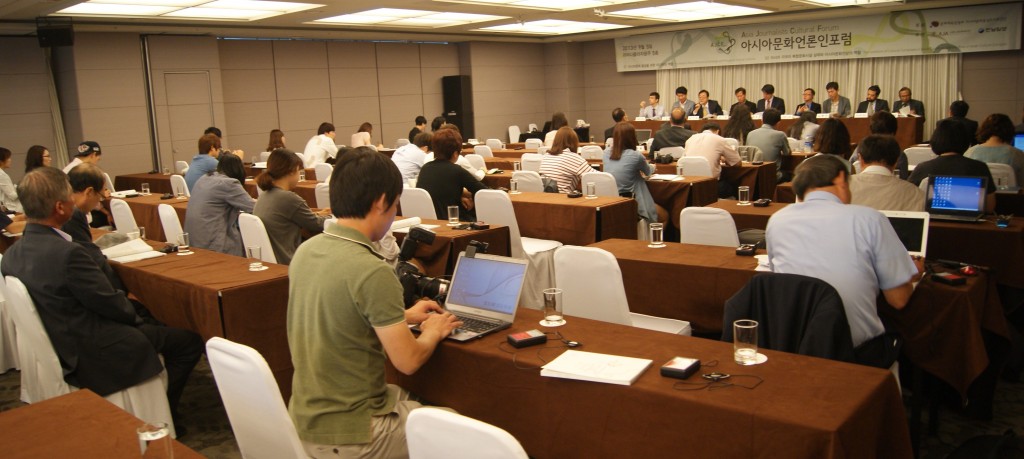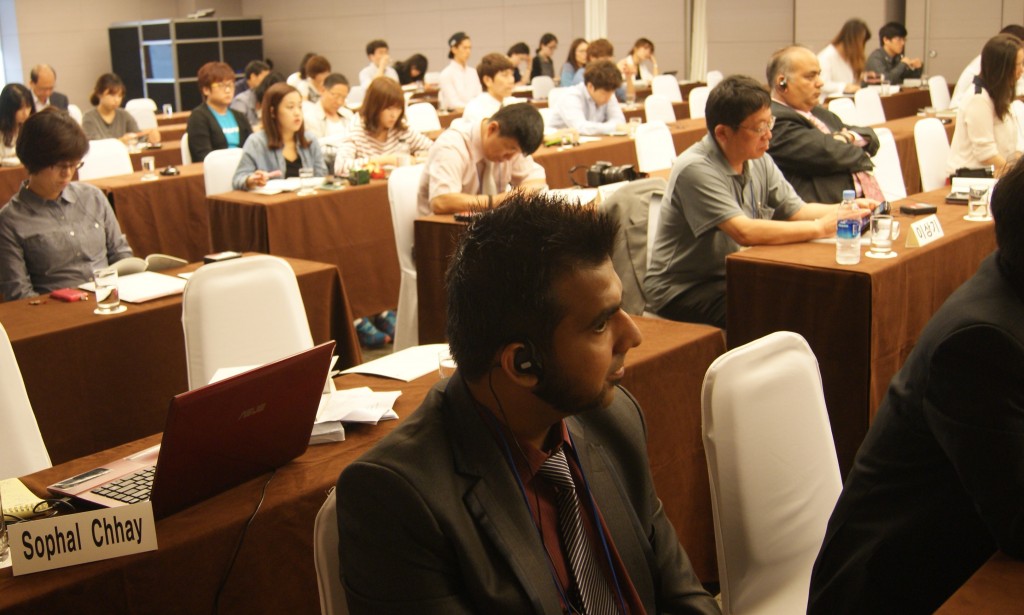Asian journalists discuss promotion of their cultural values to the world
Cambodia News & New Youth

Gwangju, South Korea (September 5, 2013): A group of journalists from Asia, including Cambodia and Middle East, on Thursday joined together in Gwangju to discuss the crucial media role to help promote the Asian culture and value to worldwide.
Speaking in his remarks at the “Asian Journalists’ Culture Forum”, Mr Keum Gi Hyung – Director of Cultural City Policy Division of South Korea’s Ministry of Culture, Sport and Tourism — said it is the first step for Asian journalists’ network in this cultural forum and the network will extend more and more in the future. Asian nations have their own value of cultures and assets and “we should share with other counties” in the world, he said.
“A success of K-culture consisting of drama, movie, and music provides an opportunity for new awareness of cultural value of Asian Countries to be on the rise outside of Hollywood, the western culture phenomenon,” Mr Keum added.
In his note delivered during the forum, Chhay Sophal – Editor-in-Chief of New Youth Print and Online Media – from Cambodia said since social media network like twitter, flickr, facbook, YouTube, and blog have been booming while the world is becoming globalized and exchanging workforces, nothing can be hidden and everything is being shared from a country to another.
“With the trend of Information, Communication and Technology (ICT), media’s communication has extremely changed human lifestyles on the earth. The rapid move of ICT drives media’s communication across and shares the cultural values of respective Asian nations with each other as well as helps strengthen their cultural identities,” he said.
Through their reporting by using advanced ICT, the Asian Media’s intercultural communication can speed up people’s attraction on their respective nations’ traditional ways of living, healthy and lifestyle – arts, dances, films, other entertainments, folk plays, clothes, foods, herbal medicines, beliefs, religions, traditional ceremonies (wedding, birthday, New Year festival, and other traditional ceremonies), colours, languages, and architecture, etc., Mr. Sophal added.
“While some Asian nations want to wish actively to preserve their own cultural identities, media can bring their attention on the crossing-cutting cultures for harmony, prosperity and peaceful living in the region”.
Ivan Lim, a Singaporean who is the President of the Seoul-based Asia Journalists Association (AJA), said AJA is trying to promote Asian culture through its both print and online among Asian people and governments and trough its journalist members in the region.
‘If you want people to know and appreciate Asian culture, offer them such a dedicated edition produced by specialized writers,” he said.
Journalists, lectures, and university students and government officials from Afghanistan, Bangladesh, Cambodia, Egypt, Indonesia, Japan, Korea, Kyrgyzstan, Kuwait, Pakistan, Philippines, Singapore, Turkey, and Vietnam also shared their experiences, suggestions and recommendations with each other to help promote the Asian cultures and value among the world.


